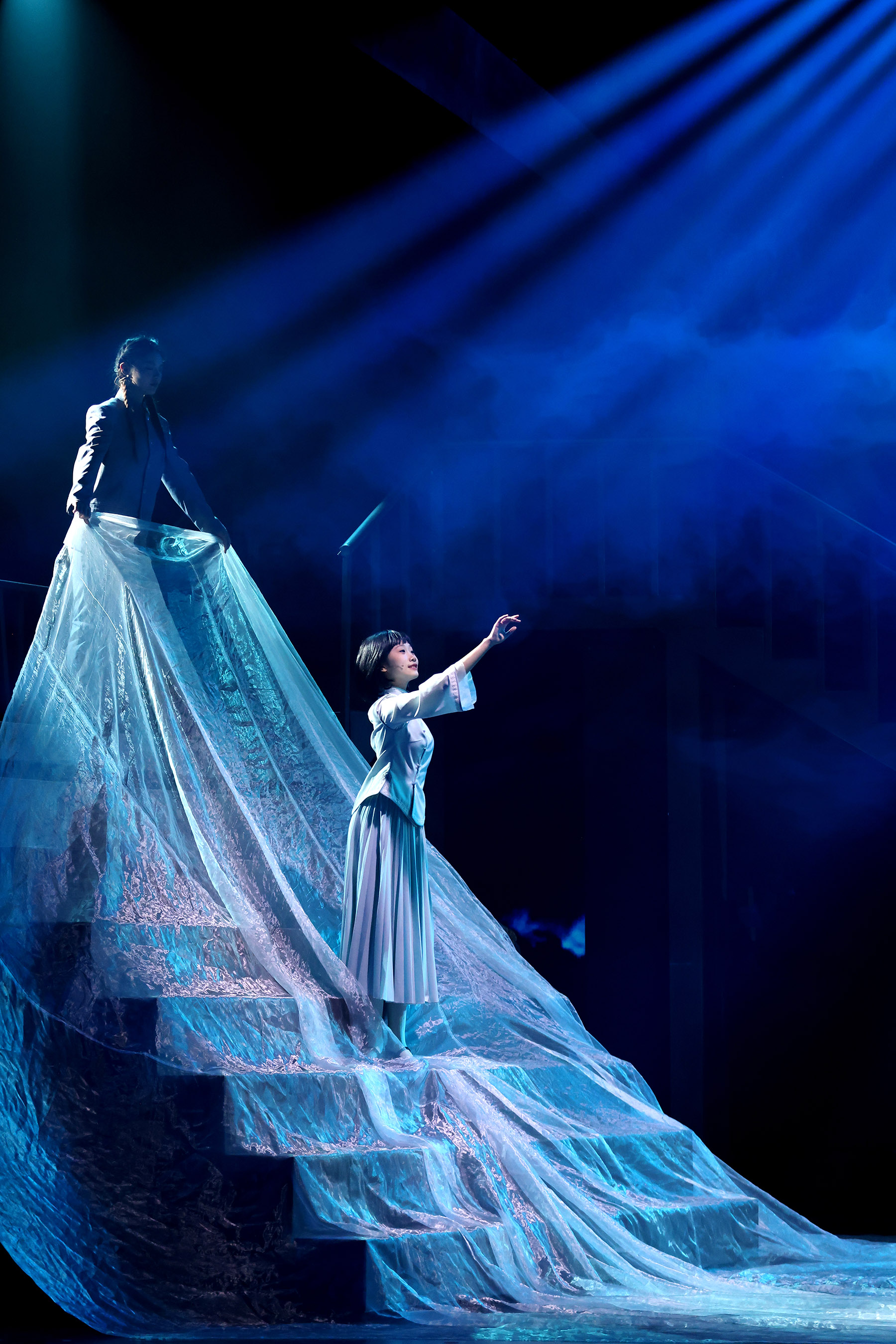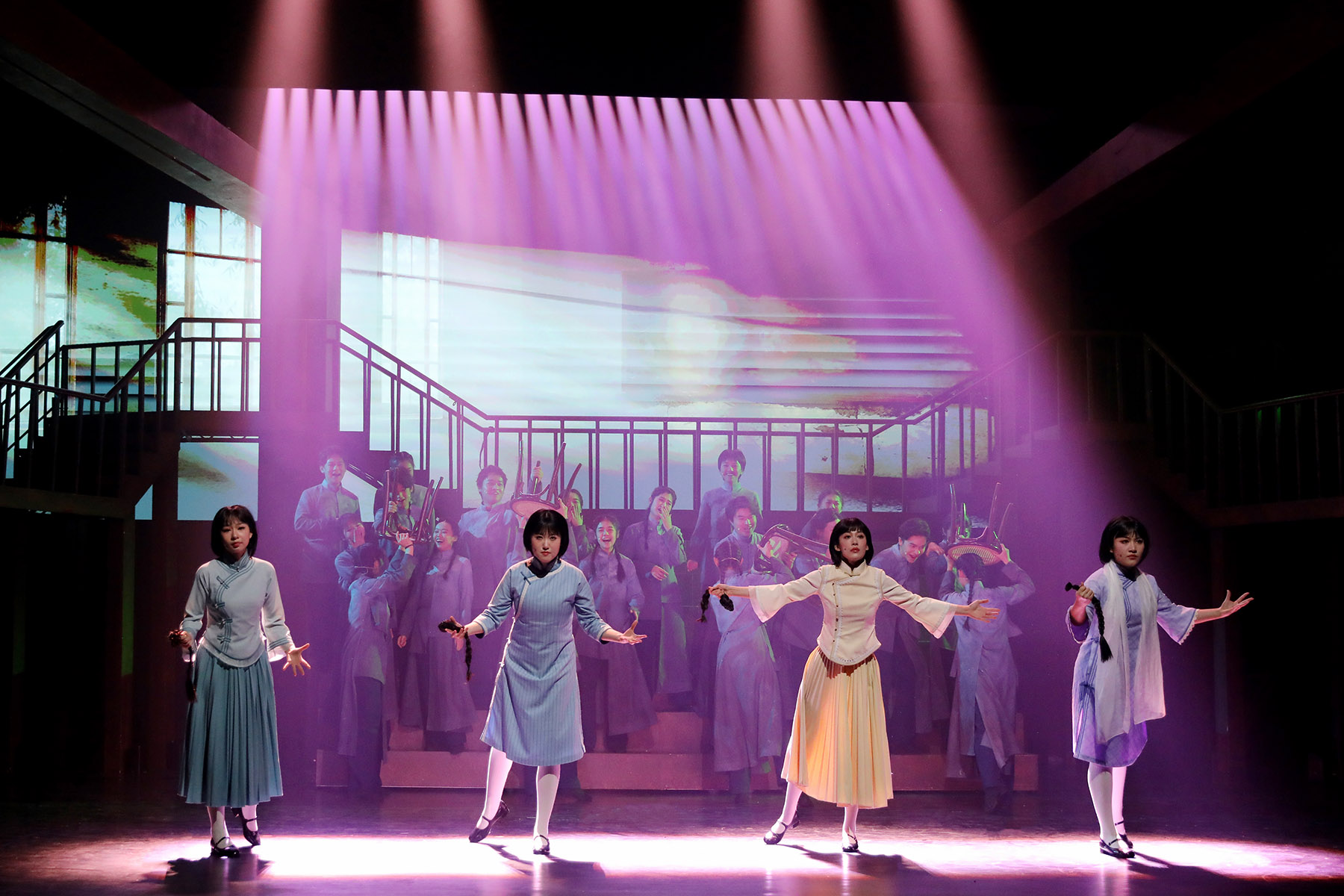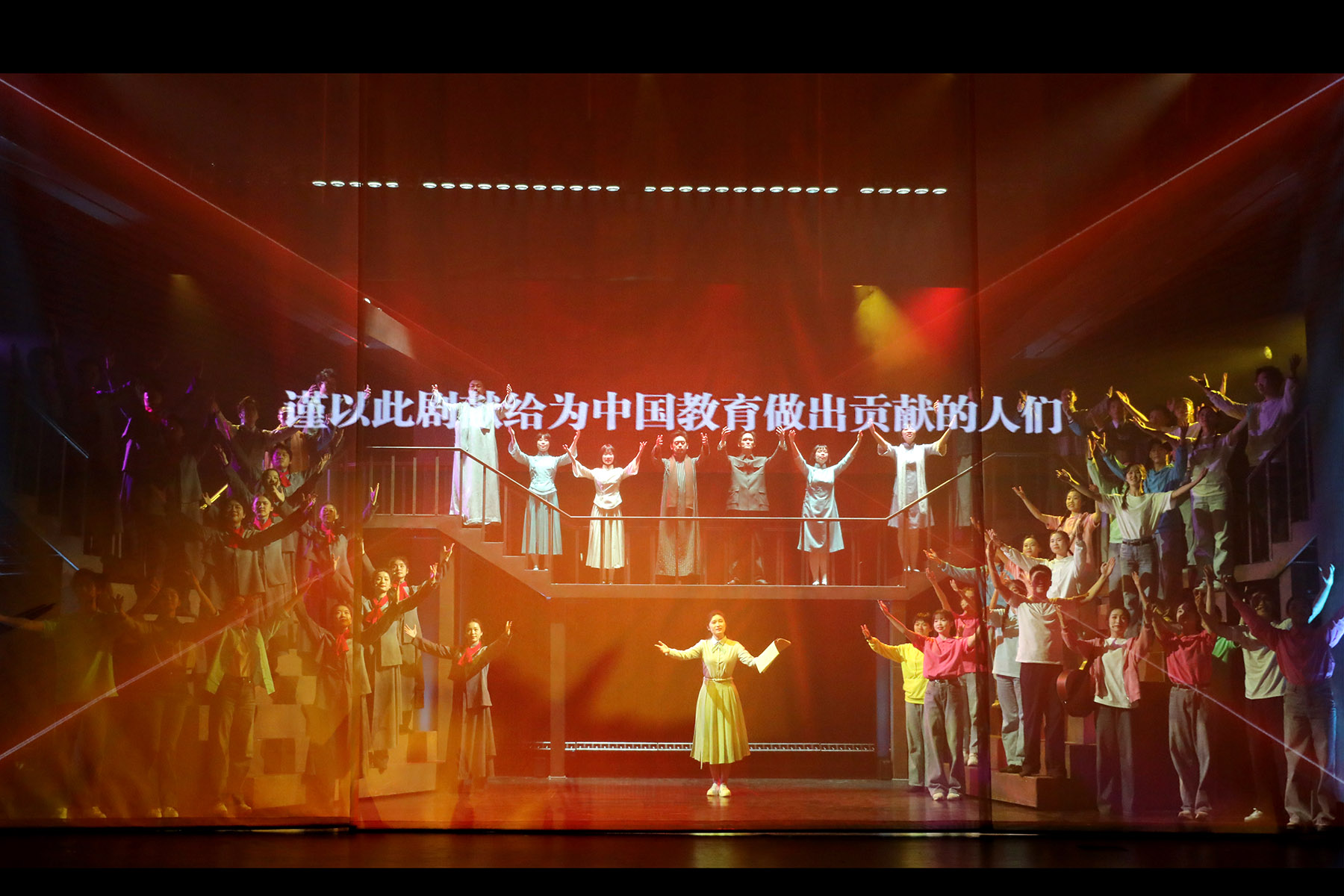The fascinating story of the early years of Beijing Normal University takes to the stage, Cheng Yuezhu reports.

A century ago, pioneering educators in China persevered through thick and thin to carry forward the torch of knowledge, from seeking educational reform during the New Culture Movement to moving across provinces to preserve educational resources during the War of Resistance Against Japanese Aggression (1931-45).
The institution that was later renamed Beijing Normal University, dedicated to teacher training, became the foreground of debates on educational reform, with the participation of renowned educators and philosophers committed to the principle of "saving the nation through education".
Recently, their legacy took center stage in Beijing Normal University's original musical Today and Me, which premiered on Jan 16 and ran until Jan 18 at the Lao She Theater in Beijing, recounting the early days of the school's establishment and paying tribute to those driving the development of modern teacher training.
READ MORE: Singing in a new year of musical exploration
"I remember one time the university's Party secretary Cheng Jianping proposed that since I had worked on many productions, I should create a piece for our university to show our students what kind of university BNU is," says Xiao Xiangrong, the musical's chief director and dean of the university's School of Arts and Communication.
"Beijing Normal University is a school with a deep history. This production is based on the starting point of exploring the significance of education for China and the significance of teacher training for education."

The university dates back to 1902, when its predecessor, the Education Department of the Imperial University of Peking, was established to train teachers and specialists.
Teacher training at one time faced significant challenges, with debates on whether it is necessary to set up higher normal schools specifically for the purpose. Philosopher and politician Liang Qichao and educator Fan Yuanlian staunchly defended their existence, leading to the school's elevation to China's first normal university in 1923. Fan served as its first president.
"Fan emphasized that it relied on teacher training to improve the nation's overall literacy and people's character," Xiao says.
"With this production, we trace the roots of modern China's teacher education. We want our students to recognize the significance of teacher training and the obligation of educators to step forward to fulfill the nation's educational demands."
The musical's scriptwriter Tang Ling says that this production is one of the most challenging projects she has worked on in recent years, in order to faithfully capture the history and do justice to the historical figures.
"Through the process of researching and writing this piece, I came to a deep understanding of the sense of mission and responsibility that drove those educators to put in tremendous efforts and seek paths for the country's development despite the difficult conditions," Tang says.

Instead of zooming in on one or two prestigious teachers or students from the university's early days, the team decided to present the production as an ensemble drama, a method that can help reflect the arduous collective journey and the zeitgeist of the era.
Apart from influential educators such as Liang and Fan, the production presented a scene where female students, such as Liu Hezhen and Shi Pingmei, cut their hair short to advocate for women's independence and gender equality.
"We hope to present this ensemble of characters and their stories, which are both turbulent and inspiring. For us, attending schools and receiving education seem natural and taken for granted, and we rarely stop to consider the difficulties faced by teacher training schools in the early days," Tang says.
"It led me to think about how many things we see as ordinary were in fact hard-won. It was only made possible because a generation of pioneers bore the hardship and paved the way for the future."
The musical's entire process, including planning, producing and casting, called for the participation of students and faculty from the university, providing the students with a platform to work with professionals and exercise their creative potential.

According to Zhu Jie, the musical's composer and an associate professor at the university, while the musical incorporates a variety of vocal forms, including solos, duets and choruses, 19 out of 26 original songs are choral pieces.
In an effort to merge the past with the present, the production's prologue and epilogue show a contemporary Beijing Normal University student singing, highlighting the development and heritage of China's education spanning a century.
ALSO READ: Sparking youthful passion for the stage
The monologues, dialogues and debates among characters portray the vibrant exchange of ideas during the early educational reforms. Multimedia technology is adopted to create smooth transitions between historical and modern narratives.
The production is set to become a recurring show at the beginning of every academic year, for the university's freshmen to learn about its history and inspire in them a passion for education. It will also tour to other Chinese universities.
Contact the writer at chengyuezhu@chinadaily.com.cn


